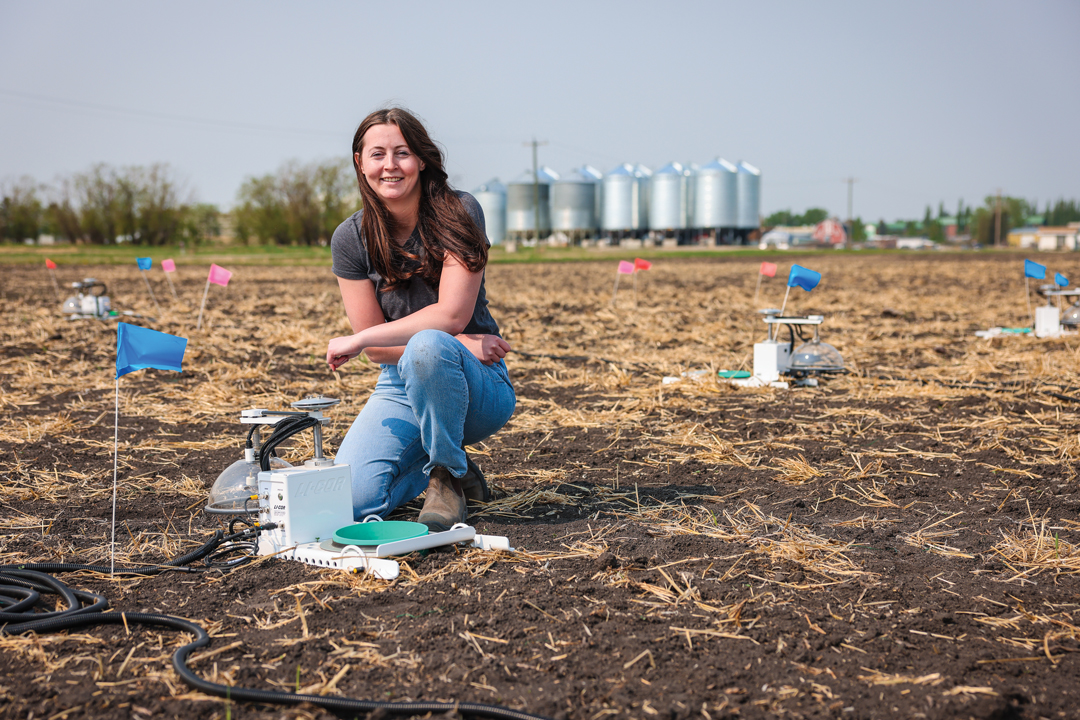SOUL FOOD
THE DIFFERENCE BETWEEN LIVING AND LIVING WELL
BY LISA SKIERKA
Quinoa. New Zealand wine. Canola oil. In agriculture, we’re fortunate to experience game-changing food movements motivated by economics, science and ingenuity. The creative spark is what influences this innovation, and it truly is a hallmark of the human experience.
The same capacity for creativity is at play in the extensive (and expensive)marketing and promotions campaigns behind new food fads and trends, none of
which has successfully combatted North America’s ongoing “battle of the bulge.” From gluten-free to fat-free, from sugar- free to calorie-free, consumers are beset by messaging aimed at convincing us to spend more to weigh less. Following these diet trends is almost an obsession in itself.
But why do we care so much about food?
When our ancestors first cultivated the land and engaged in animal husbandry,they were taking a key step in human evolution:They were farming. And as farming methods improved, they were able to move away from merely surviving on food to truly enjoying it. In this manner, innovation in farming evolved hand-in-hand with innovation in food, becoming part of our social fabric.
This is why so much of our commonality—our community and our culture—is built around food, making it a key part of how we relate to one another socially. In the immortal words of country singer George Strait, “there’s a difference in living and living well.” Eating good food, in good company, and knowing it’s healthy, safe, sustainable and of top quality is a privilege most Canadians take for granted. Our daily grind is focused on when to eat and what to eat, as opposed to the more basic problems of “where can I find food?” and “do I have enough to feed my family?”
This is not to say Canada doesn’t have serious issues of poverty and hunger, but these issues are not the norm for Canadians. We are a nation built on farming and we are a nation of exceptional farmers. And we are not afraid of innovation.
Science has given us the ability to fight crop diseases and pests, and to create newer, better and stronger crop varieties that really do mean farmers can feed the world. Exceptional marketing and a commitment to trade ensure we have enjoyed Peruvian quinoa, New Zealand wine and Florida oranges while people around the world have tried Alberta Beef, B.C. cherries and Canadian canola oil.
We are living in an international world and our lives are richer because of it. Yet today’s farmers are both revered and relentlessly criticized. At a time when increasing numbers of Canadians have never been on a farm, and when the majority of Canadians are several
generations removed from farming, there has been a resurgence of interest in where, exactly, food comes from. This current foodie movement looks at everything from the benefits of organic farming and the carbon footprint of our groceries to the costs of international trade and the overall sustainability of worldwide agriculture.
And somehow, modern agriculture comes up wanting.
The intense scrutiny our food systems are under demonstrates that food isn’t just fuel for the body, it is also fuel for the soul. People want to know—and understand—agriculture and food. They want to be a part of the social system that puts food on our tables, and they want to feel good about the food they eat. And,
perhaps most importantly, they want to be part of a system that works for Canadians at home, while also allowing us to help feed the rest of the world.
As the world shrinks—as we truly become a global community—we will need human innovation and the creative spark more than ever. The challenges ahead will determine whether humanity will merely subsist on food, or if future generations will be able to enjoy it the way we do today. And that’s the difference between living and living well.






Comments